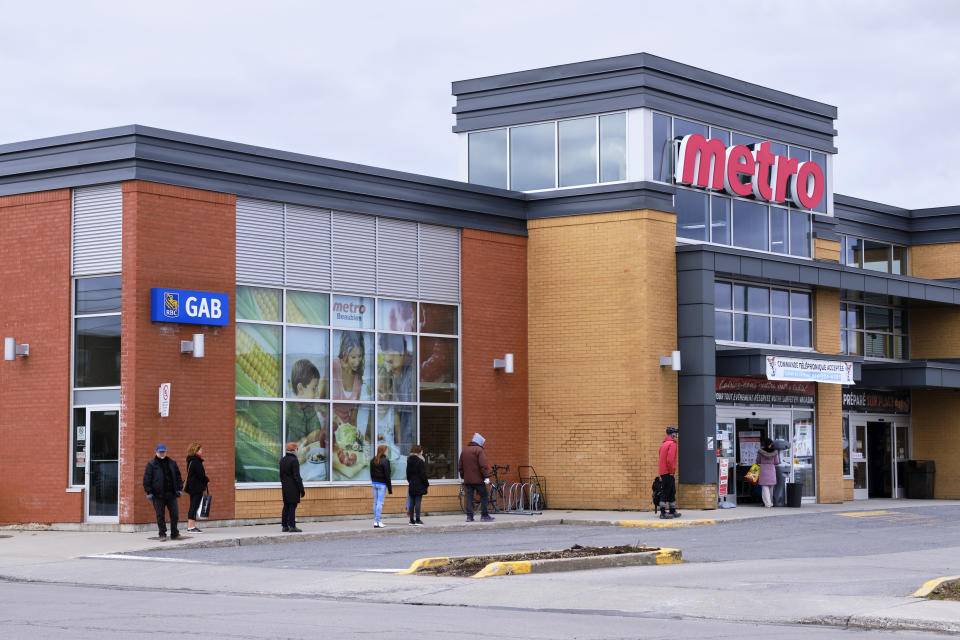Metro sees huge spike in sales, ecommerce demand due to COVID-19

The COVID-19 pandemic has led to a significant surge in sales for Metro Inc. (MRU.TO), as customers engaged in panic-buying in the early days of the outbreak and continue purchasing more food over fewer trips.
The Montreal-based grocery chain said Wednesday that shoppers in Ontario began panic-buying and stockpiling items the week of February 28. Quebec shoppers followed suit a week later, leading to a sales spike in the final week of the second quarter.
Same store sales, a key metric in the retail industry, were up 9.7 per cent in the second quarter. Metro said that figure would have been up a more moderate 5.2 per cent if it hadn’t been for the impact of the coronavirus outbreak.
“A significant surge in sales, especially in the last week of the quarter, was unprecedented and required the mobilization of all our resources to ensure the safety of our employees and customers, the resiliency of our supply chain and the operations of our food stores and pharmacy,” the company’s chief executive Eric La Fleche told analysts on a conference call Wednesday.
“Sales have since levelled off, but we are still experiencing significant increases in revenues due to the pandemic.”
Sales in the second quarter hit $3.99 billion, up from $3.7 billion during the same time last year, representing an increase of 7.8 per cent. The company estimated that COVID-19 contributed to a $125 million increase in sales in the quarter.
Same-store sales in the first four weeks of the third quarter beginning March 15 – the period when governments began enforcing strict social distancing measures and shutting down non-essential services – were up 25 per cent when compared to 2019.
While foot traffic at Metro stores has declined since the coronavirus outbreak began, customers are buying significantly more with each trip, particularly in the grocery and meat departments.
La Fleche expects that trend to continue for the foreseeable future.
“As long as we’re in confinement, as long as many sectors of the economy are not re-opening, as long as restaurants are, for the most part, closed, we expect that pattern to be sustained,” he said.
“There will be a transition period as the economy reopens, and then we'll see a bit of the return to the former pattern of more trips and a smaller basket, but I think we have some time ahead of us.”
At the same time customers are flocking to Metro’s online grocery service in unprecedented numbers. The company has now partnered with CornerShop, a third-party online grocery delivery service, to provide delivery in Toronto and Montreal as it grapples with the increasing online demand.
“We more than doubled our online volume overnight and the current demand is hard to meet as time slots are filling up as soon as they become available,” La Fleche said.
“We’re doing what we can to meet that demand as best we can.”
As shoppers buy more items, they should expect to see fewer promotions in store, in part to reduce putting further pressure on already-strained supply chains.
While that may help boost margins for the Metro, the company is seeing operating expenses increase, as it spends more on labour, transportation and safety measures, including cleaning supplies, masks, and shields. Metro employees are being paid an additional $2 an hour through to May 30. The grocery chain will review the pay raise in the coming weeks, but expects sales will be strong enough to justify higher expenses.
“At this time, it is impossible to determine how long the situation will persist, how gradual the return to normalcy will be and what this new normalcy will even look like,” La Fleche said.

 Yahoo Finance
Yahoo Finance 
